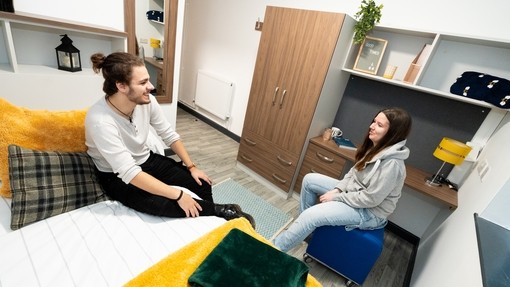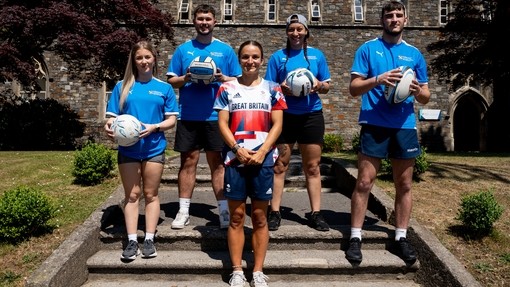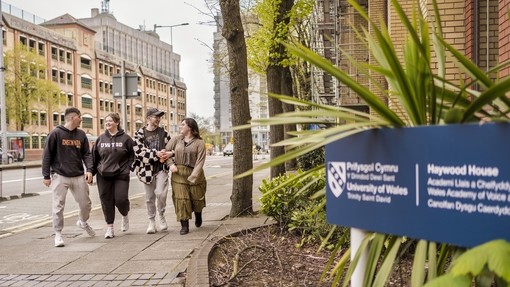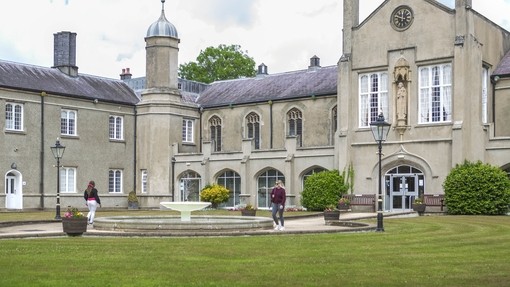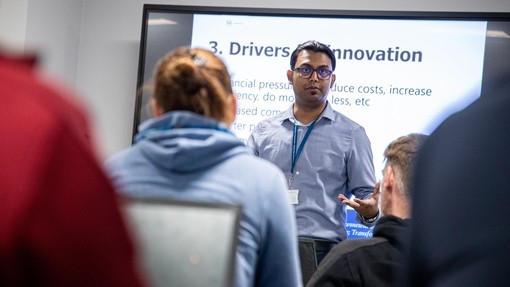Study

Ready to choose your story?
Getting your head around the options open to you can be confusing. We are here to help you make the right choice for you, whether you have always known what you want to study or you are returning to education and want to ease yourself in.
Find out more about studying at UWTSD, explore our course listings to find the study mode that works for you. Discover alternative study routes like foundation programs or degree apprenticeships and get advice from the experts about each stage of the application process.
Explore our Campuses
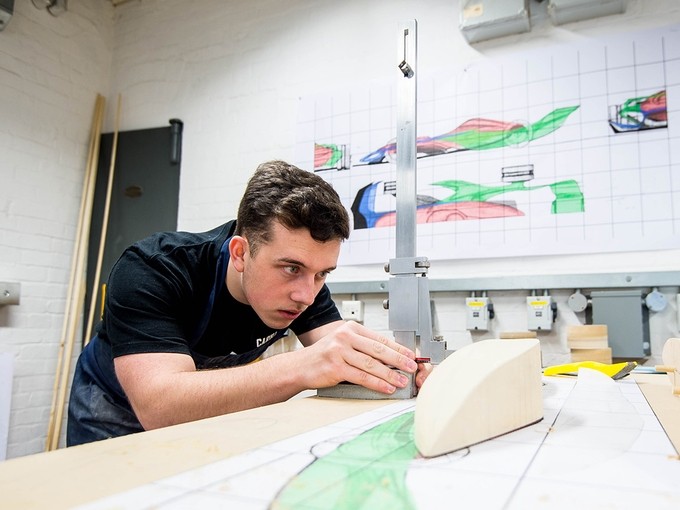
Subjects
Check out our subject clusters and explore what you will get from our subject areas at UWTSD. We have organised our courses into subject clusters to help you identify related programmes which may also interest you.

Visit Us At An Open Day
Get to know us, the place you will call home whilst studying with us and meet the experts who lead our courses and hear from our current students about what they love about studying with us.
Many alternatives to the traditional route into university now exist. Two types of undergraduate qualification, the Foundation Degree and the Certificate of Higher Education, are increasingly popular and attract students for a variety of reasons.

Looking for more information about studying a degree apprenticeship? Explore our apprenticeships page find-out about what a degree apprentiship from UWTSD has to offer you.

Course Types
Bachelor of Arts (BA) / Bachelor of Science (BSc) / Bachelor of Engineering (BEng) / Bachelor of Music (BMus) / Bachelor of Laws (LLB)
A Level 6 qualification that normally requires three years* of full-time study.
*some two-year degrees are available.
Diploma of Higher Education (DipHE)
A Level 5 qualification that is equivalent to the first two years of a full-time programme.
Certificate of Higher Education (CertHE)
A Level 4 qualification that is equivalent to the first year of a full-time programme.
Higher National Diploma (HND)
A Level 5 qualification that is designed to be work-related and vocational in nature
and is equivalent to the first two years of a full-time degree programme.
Higher National Certificate (HNC)
A Level 4 qualification that is designed to be work-related and vocational in nature
and is equivalent to the first year of a full-time programme.
Master of Design (MDes)
An Integrated Master’s Degree is a Level 7 qualification that normally requires four years
of full-time study.
Master of Arts (MA), Master of Science (MSc) / Master of Theology (MTh) / Master of Business Administration (MBA)
A Level 7 qualification following completion of 180 credits.
Postgraduate Certificate in Education Secondary (PGCE Secondary) / Post Compulsory Education and Training (PCET) / Post Compulsory Education (PCE)
A qualification consisting of 60 credits at level 7, and 60 credits at level 6.
Postgraduate Diploma (PGDip)
A Level 7 qualification following completion of 120 credits.
Postgraduate Certificate (PGCert) / University Certificate (UniCert)
A Level 7 qualification following completion of 60 credits.
Doctor of Philosophy (PhD)
A level 8 qualification, a research project usually completed over 3-4 years if full-time or 6-8 years part-time.
Professional Doctorates (DProf/ProfDoc) / Doctor of Business Administration (DBA) / Doctorate in Education (EdD)
A level 8 qualification, usually with 1 year of taught modules and a 2-3 years research project if full-time, or 2 years (taught) and 4-6 years (project) part-time.
Doctor of Philosophy by Published Works (PhD)
A level 8 qualification consisting of a reflective analysis and selection of previously internationally peer-reviewed published works, usually completed in 1 year full-time or 2 years part-time.
Master of Philosophy (MPhil)
A level 7 qualification, equivalent to the first 2 years of study of a PhD, usually completed in 2-3 years full-time or 4-6 years part-time.
Master of Research (MRes)
A level 7 qualification, with 60 credits of taught modules and a research project, usually completed in 2 years full-time or 4 years part-time.
Master of Science by Research (MScRes)
A level 7 qualification with no taught modules, usually completed over 1-2 years full-time or 2-4 years part-time.
On Campus
Programmes where students are in physical attendance for the whole of their course, with the exception of supporting online elements, which will represent less than 25% of the course.
Blended
Programmes where students are in physical attendance for more than 50% of their total contact hours.
Distance
Programmes where students are not in physical attendance for any of their course.
Full-Time
Students normally study 120 credits each academic year
Part-Time
Students normally study fewer than 120 credits each academic year, but the exact number of credits each year may vary.



